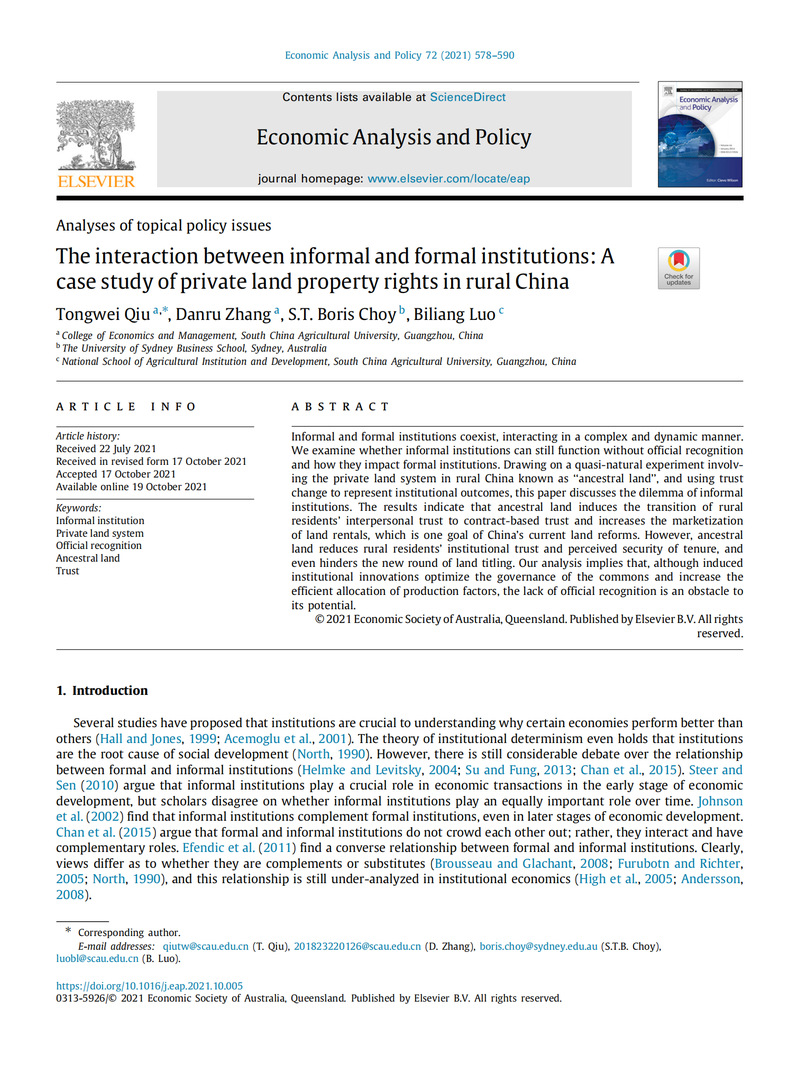DOI: 10.1016/j.eap.2021.10.005
摘 要
Informal and formal institutions coexist, interacting in a complex and dynamic manner. We examine whether informal institutions can still function without official recognition and how they impact formal institutions. Drawing on a quasi-natural experiment involving the private land system in rural China known as ancestral land, and using trust change to represent institutional outcomes, this paper discusses the dilemma of informal institutions. The results indicate that ancestral land induces the transition of rural residents' interpersonal trust to contract-based trust and increases the marketization of land rentals, which is one goal of China's current land reforms. However, ancestral land reduces rural residents' institutional trust and perceived security of tenure, and even hinders the new round of land titling. Our analysis implies that, although induced institutional innovations optimize the governance of the commons and increase the efficient allocation of production factors, the lack of official recognition is an obstacle to its potential. (C) 2021 Economic Society of Australia, Queensland. Published by Elsevier B.V. All rights reserved.
关键词
Informal institution; Private land system; Official recognition; Ancestral land; Trust

基金资助:
This study is supported by the keystone project of National Social Science Fund of China (20FGLA004) .
责任编辑:董晓玲
审 定:黄 松